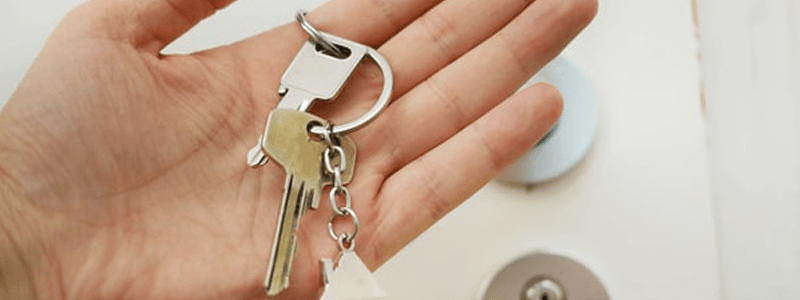Suppose you have filed for bankruptcy in the recent past. In such cases, you need to keep the faith to restore normal financial functions and levels. The fact is that bankruptcy does indeed provide your credit report with a sort of permanent black blot. But you can hope to carry out most financial functions in due time if you proceed with caution and care regarding your post-bankruptcy economic activities. And, yes, you can get mortgages too, provided you know the necessary steps.
Time Required After Bankruptcy Before You Can Buy a House With a Mortgage
The first requirement for applying for a mortgage after filing for bankruptcy is to wait for the judge overseeing your case to discharge or dismiss your bankruptcy. The exact waiting times necessary for getting mortgage loans after filing for bankruptcy depend on the following factors:
- Type of bankruptcy and
- Type of loan
Types of Bankruptcy
Bankruptcy usually is of two different types, which are as follows:
Chapter 7 Bankruptcy
Chapter 7 is the most typical form of bankruptcy used by most people who file for bankruptcy. In Chapter 7 bankruptcies, courts wipe off all the debts that qualify within the legal stipulation scope. But be aware, your credit will take a straight nose dive. You can find more details here about bankruptcy and the types of bankruptcies.
You should keep in mind that you need to pass at least four years after the dismissal or discharge of Chapter 7 bankruptcy claims if you are seeking conventional loans. However, if you intend to acquire your mortgage loans from governmental sources, they are more lenient than other sources.
For people looking for loans provided by the USDA, the bankruptcy claimant needs to wait for a period of three years. For people looking for an FHA or VA loan, the waiting period is lessened by another year. You need to wait for only two years after your bankruptcy claim has been dismissed or discharged.
Chapter 13 Bankruptcy
In case you have filed for a chapter 13 bankruptcy, you would need to reorganize your debts. In this type of bankruptcy, you will need to pay your creditors on a scheduled basis. It need not affect your credit score to the extent of a Chapter 7 bankruptcy. Additionally, you also get to maintain ownership of all your assets.
Though this type of bankruptcy is less severe, there still remains a waiting period for you when taking loans. After filing for bankruptcy, the waiting period to apply for a new loan is determined by the courts and how they eventually decide to handle your bankruptcy claims. For claims dismissed by the courts, the waiting period is four years from the date of dismissal.
Just like in Chapter 7, bankruptcies, government-backed loans adopt more relaxed norms. After waiting for a single year, you can get a USDA loan irrespective of bankruptcy dismissal or discharge. For VA and FHA loans, there are no waiting periods.

What are the Mortgage Options Open to You After Bankruptcy?
There is no barrier preventing a person from getting any particular type of mortgage loan in strictly technical terms or terms of legal stipulations. Bankruptcy does not pose as a hindrance to you in getting any kind of mortgage loan as long as they undergo the waiting period requirements. But to be honest, there are indeed certain types of mortgage loans that are more accessible than others for people with bankruptcy filing records.
FHA Loans
FHA loans are particularly suitable for people who have a record of filing for any type of bankruptcy. FHA mortgage loans have relatively short waiting periods for Chapter 7 bankruptcy and no waiting period at all for their Chapter 13 counterparts upon dismissal or discharge by the court.
Additionally, the requirements of loans provided to you by the FHA have been far more lenient than the other types of government-backed loans available to you.
VA Loans
Veterans can get special VA mortgage loans once two years have passed after a competent court has discharged the bankruptcy proceedings. The process involved in applying to such loans are complicated and can pose quite a challenge for someone unacquainted with the intricacies of finance.
It is at the same time, and it is relatively lenient as there are no credit issues to be addressed like foreclosure until the two years pass. The interest rates of such loans are determined by credit factors, however. So, you need to maintain a clean post-bankruptcy credit history.
USDA Loans
People who reside in rural America and for whom three years have passed since the discharge of your bankruptcy filing might qualify for a USDA mortgage loan. It should be kept in mind that these USDA loans are available only for rural Americans who have only the mortgaged property as their primary residence. So, if you were thinking of funding a vacation home or income property with this type of loan, you can rule out that possibility.
Best Way Forward
One of the best things about FHA loans is that it requires a lesser credit score. Irrespective of whether you’re filing is discharged or dismissed, and your credit score is going to suffer. Chapter 7 and Chapter 13 bankruptcies are reflected in credit scores for 10 and 7 years, respectively. With these details in mind, it’s best to determine which plan of action will improve your credit score while overcoming bankruptcy.
During this period, your credit score is likely to stay far below the levels you enjoyed before you filed for bankruptcy. This level should not go lower because it will worsen your financial problems further. It’s best to practice discipline when dealing with money from this point forward.
However, with an FHA mortgage loan, you can secure one with credit scores as low as 580 points. If you can make a significant down payment, the required score can come down to something as low as 500 points. Irrespective of the loan you choose for, remember the lender will stock your entire financial situation. This includes finance aspects like credit history and score besides other kinds of financially stressful or unstable situations.




